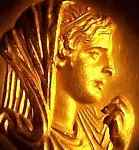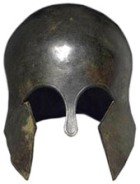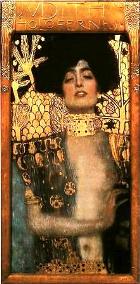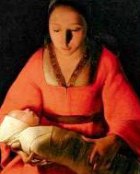
- Judith, a beautiful, clever widow
- Holofernes, the enemy general
- Abra, Judith’s faithful maid
- Uzziah, chief magistrate and councillor
- Achior, prince of a nearby city
What started the trouble?
Once when he was at war, the great King Nebuchadnezzar ordered the city states in surrounding kingdoms to send him a levy of soldiers.
Most of them ignored his demand and stayed at home. Despite this he won the war, and when it was over he decided to take revenge on the cities who had failed to help him. He summoned the fearsome leader of his army, Holofernes, and ordered him to punish the states who had flouted him.
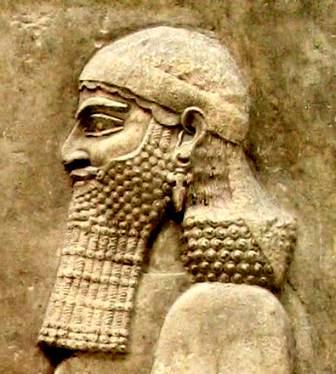 So Holofernes set out, burning, murdering and plundering as he went. All those who would not submit to Nebuchadnezzar were destroyed completely.
So Holofernes set out, burning, murdering and plundering as he went. All those who would not submit to Nebuchadnezzar were destroyed completely.
The hills of Judea
The Israelites who lived in Judea knew their turn was coming. They were terrified, especially since they had only recently returned from exile in Babylon and knew that Nebuchadnezzar would not only obliterate them but the Temple they had just rebuilt.
So they devised a plan: they would retreat to the hill-tops, fortify and provision them, and wait out the storm.
Holofernes approaches Bethuliah
One of the Israelite towns was Bethulia. It sat astride the route to Jerusalem, and so it was in a strategic position: Holofernes had to capture it to keep his supply lines open.
Holofernes sent out scouting parties, who told him that the mountain passes had been closed and the hilltop villages fortified. He was outraged at their failure to submit, and called a meeting of all the princes of the Moabite and Ammonite city states.
One of the princes, Achior of the Ammonites, took the opportunity to tell him about the Israelites. He praised them as a people, and begged Holofernes to not to harm them.
Holofernes decides to attack Bethulia
 Holofernes did not respond to this plea. He reasoned that sheer strength of numbers would guarantee him success and that the Israelite settlements would be easy prey. He was not pleased with Achior either. He had him seized, tied up, and left outside the walls of the town.
Holofernes did not respond to this plea. He reasoned that sheer strength of numbers would guarantee him success and that the Israelite settlements would be easy prey. He was not pleased with Achior either. He had him seized, tied up, and left outside the walls of the town.
The townspeople retrieved Achior and took him inside the walls of Bethulia. Once there, Uzziah, the chief magistrate of the town, pumped him for information.
Achior told him about Holofernes’ plans; he also told them of the admiring description of them that had landed him in so much trouble. The grateful townspeople made him welcome.
Holofernes lays siege to Bethuliah
Holofernes then mustered his entire army. The little mountain town was vastly outnumbered but the walls of Bethulia were strong, and they decided to tough it out. Holofernes laid siege to the town, and settled down to wait.
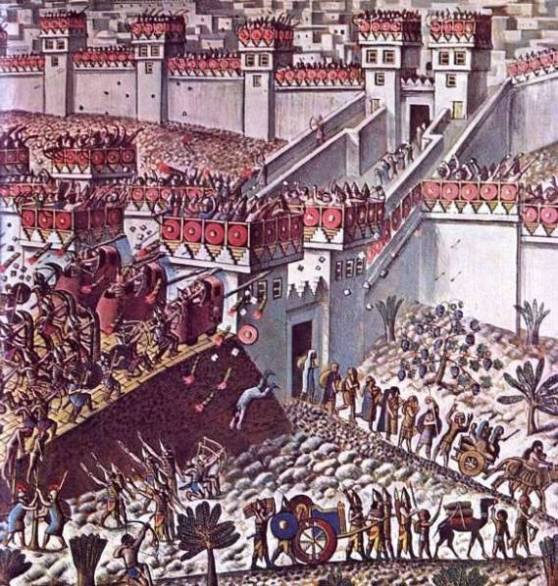
An ancient city attacked and overwhelmed by superior forces
The people of Bethulia held out until every water container in the town was dry. Then when things got desperate they began to blame Uzziah for not submitting to Holofernes in the first place. They urged him to surrender the town to Holofernes.
Judith steps forward
At this stage in the story we are introduced to Judith of Bethulia. She was a woman of impeccable character and great beauty. She was also a widow – her husband had left her financially independent, and she lived a simple life, fasting and praying.
She was evidently influential, because she sent for the elders, including Uzziah, and when they came to her she chided them.
 Uzziah brushed off her advice, telling her that the best thing she could do was leave decision-making to the men.
Uzziah brushed off her advice, telling her that the best thing she could do was leave decision-making to the men.
Judith in turn brushed off his advice. She told Uzziah she and her maid would leave the town that night, and to have the city gate opened for them.
Judith prays
When the men were gone, she prostrated herself on the ground and prayed to God.
She described the predicament of the townspeople, then urged God to break the enemy’s power by putting strength instead into the hands of a widow, herself.
She also asked God to make her a good liar – surely one of the Bible’s strangest moments.
Judith perfumes and dresses herself
When she had finished her prayer
- she perfumed herself
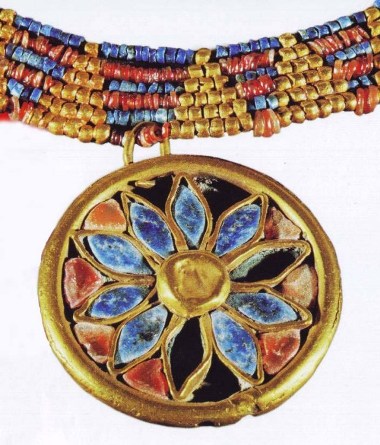
- dressed her hair with a tiara
- put on one of the extravagant robes she wore when her husband was alive, and
- decked herself with jewelry – anklets, bracelets, rings, earrings and other assorted pieces.
After that, she and her maid gathered an assortment of ritually pure food and put it all in a large bag. The town gates were opened, and she and her maid slipped out.
Almost immediately she and her maid ran into an Assyrian patrol, who challenges them. She told the soldiers she had secret information that would help Holofernes capture the town without losing a single soldier.
The soldiers were bowled over by her beauty, and took her to Holofernes. The general was resting on his luxurious bed, but he came to the front of the tent and greeted her.
Holofernes is smitten
Beguiled, he told her that he had never met a woman who was as beautiful in appearance and wise in speech as she was. He provided a tent for her, and told the soldiers to leave her unharmed. She stayed three days in the camp, remaining in the tent during daylight hours and eating her own food each evening.
On the fourth day, Holofernes invites her to an informal banquet in his tent.
As he observes to his servant, it would be a disgrace to let her go without seducing her. She dressed in all her finery and presented herself at his tent, where her maid has laid Judith’s sheepskin bedding on the ground.
The seduction – of Judith? of Holofernes?
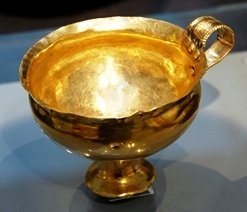 When Judith came into the tent and lay down on the sheepskins, Holofernes was besotted. He offered her something to drink, but she drank only the wine given to her by her maid – was it watered down so she could stay sober? Holofernes, on the other hand, got down to some serious drinking.
When Judith came into the tent and lay down on the sheepskins, Holofernes was besotted. He offered her something to drink, but she drank only the wine given to her by her maid – was it watered down so she could stay sober? Holofernes, on the other hand, got down to some serious drinking.
Eventually Judith was left alone in the tent with Holofernes, now dead drunk, stretched out on his bed.
The moment had come to act. She lifted down Holofernes’ gleaming sword hanging in its sheath from the bedpost, and prepared to use it.
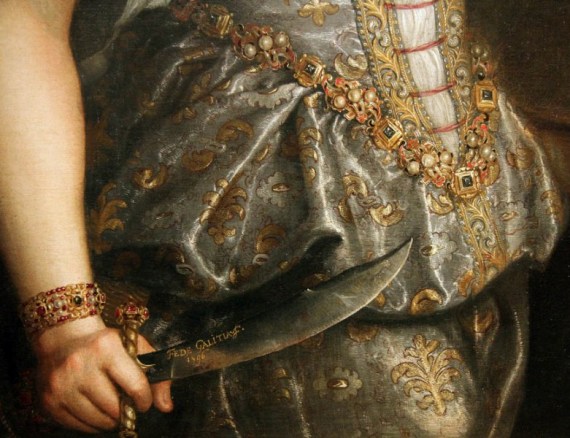
Judith hacks off Holofernes’ head
She struck once, then again. On the second stroke his head fell away from his body.
 She then rolled the headless body off the bed and pulled down the luxurious bed curtains. Pausing for a moment to gather her strength, she picked up the twitching head and passed it out to her maid, who placed it in the food bag.
She then rolled the headless body off the bed and pulled down the luxurious bed curtains. Pausing for a moment to gather her strength, she picked up the twitching head and passed it out to her maid, who placed it in the food bag.
Without arousing suspicion, the two women left the tent and passed through the camp, then circled up towards Bethulia.
Once there, they call to the guards to open the gates and let them in. Inside the safety of the walls, Judith pulled out the grisly contents of the bag and showed it to the people.
The enemy flees
But the battle was not over yet. Judith instructed the people to hang Holofernes’ head in full view on the battlements, and gave instructions for the next morning.
At dawn when the Assyrian soldiers went to wake Holofernes they found his headless body.
Without their leader they panicked and fled in great disorder. They were easy prey for the Israelites, who were familiar with the terrain and were experts at guerilla warfare.
Judith became a national heroine, lauded by everyone. She lived on, heaped with honors, until she was very old – one hundred and five.
The faithful maid who had accompanied her was set free.
Judith never remarried.
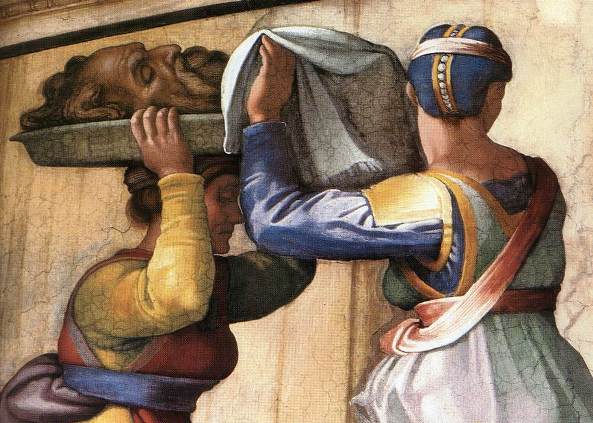
Michelangelo, detail from the painting of Judith in the Sistine Chapel
Search Box
![]()
© Copyright 2006
Elizabeth Fletcher



